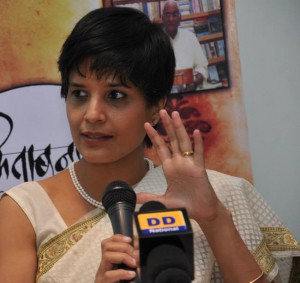Literati – Kids and reading ( 1 February 2015)
 My monthly column, Literati, in the Hindu Literary Review was published online ( 31 January 2015) and will be in print ( 1 February 2015). Here is the url http://www.thehindu.com/books/literary-review/literati-a-look-at-the-world-of-books-publishing-and-writers/article6842119.ece. I am also c&p the text below. )
My monthly column, Literati, in the Hindu Literary Review was published online ( 31 January 2015) and will be in print ( 1 February 2015). Here is the url http://www.thehindu.com/books/literary-review/literati-a-look-at-the-world-of-books-publishing-and-writers/article6842119.ece. I am also c&p the text below. )
One day a mother asked me how she could get her sons to read. I wondered if the children were off picture and pop-up books too. The mother said, “They are too old for pop-up books! They are in kindergarten.”
In January, Scholastic Inc. published Kids & Family Reading Report (Fifth edition) based on a survey conducted in the US.., but some of the results are valid worldwide. Reading out aloud to children regularly kindles an interest in books, unleashes their imagination, makes them curious and introduces them to a variety of cultural indicators. Children aged six and above began to show signs of easing away from reading for pleasure. A possible reason is that adults want the children to be “independent readers” and so stop reading out aloud. Eighty-three per cent of children across age groups say they love(d) or like(d) being read to a lot — the main reason being it was a special time with parents. With an older age group of children (ages 12-17) who are frequent readers, it was noticed that they read a book of choice independently in school, relied upon e-reading experiences, had access to a large home library, were aware of their reading level and had parents involved in their reading habits.
Ninety-one percent of children aged 6-17 say, “my favourite books are the ones that I have picked out myself.” The majority of kids aged 6-17 (70 per cent) say they want books that “make me laugh.” Kids also want books that “let me use my imagination” (54 per cent), “tell a made-up story” (48 per cent), “have characters I wish I could be like because they’re smart, strong or brave” (43 per cent), “teach me something new” (43 per cent) and “have a mystery or a problem to solve” (41 per cent). While the percentage of children who have read an e-book has increased across all age groups since 2010 (25 vs. 61 per cent), the majority of children who have read an e-book say most of the books they read are in print (77 per cent). Nearly two-thirds of children (65 per cent) — up from 2012 (60 per cent) — agree that they’ll always want to read books in print even though there are e-books available. Heartening news for publishers!
At Digital Book World Conference 2015 (January 13-15, 2015), New York, Linda Zecher, CEO, Houghton Mifflin, said, “You can’t serve content to children, you have to curate.” Mixing a variety of books for younger readers is important — picture books, pop-up books or even explosive pop-up books and poetry. Sudeshna Shome Ghosh, Editorial Director, Red Turtle, says, “With simple words that may have repetitions or rhymes and pictures, these books are easy to reread and even remember by heart. Even as a child grows older, trickier concepts are easier introduced through picture books (where do babies come from, how people/things are same and different, concepts of diversity, human emotions etc.)”. Imprints that specialise in graded reading are Puffin India, Hole Books/Duckbill Books, Read it yourself with Ladybird, Banana Storybooks/Egmont Publishing, Usborne Young reading, Let’s read!/Macmillan, I Can Read!/Harper, Step into Reading/Random House, and Scholastic Reader.
In India, children are fortunate to be exposed to a multi-lingual environment. It is not always easy to locate a single publishing list that will whet all appetites. Instead it has to be “curated” from the moment infants are given cloth and board books and flash cards. Some books for all ages that “work” splendidly are the late Bindia Thapar’s Ka Se Kapade Kaise (Tulika Books); Anushka Ravishankar, Sirish Rao and Durga Bai’s One, Two, Three! (Tara Books), Devdutt Pattanaik’s Pashu: Animal Tales from the Hindu Mythology, Puffin Books; H.S. Raza’s Bindu with Ritu Khoda and Vanita Pai (Scholastic India); What a song! A Bundelkhandi Folk Tale (Eklavya Publication); Rabindranath Tagore’s Clouds and Waves (Katha); Ruskin Bond’s Tigers for Dinner: Tall Tales (Red Turtle) and Nury Vittachi’s The Day it Rained Letters (Hachette India).
As adults we like books that have “pictures”. Few like to admit to the truth. So we disguise it with our preference for heavily illustrated books, photo books, coffee table books and to some extent graphic novels. So why is it with our children we are in a hurry for them to read books that border on the “educational”?
31 January 2015

